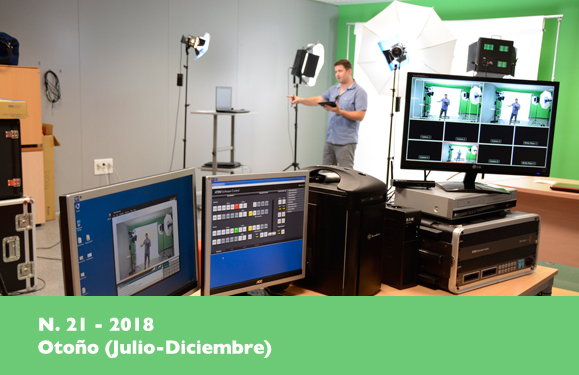Debate académico de puertas abiertas como herramienta para estimular el pensamiento crítico y la orientación científica: una experiencia piloto
DOI:
https://doi.org/10.7203/attic.21.13495Palabras clave:
debate, herramienta de aprendizaje, pensamiento crítico, interdisciplinariedad, educación innovadora y al aire libre Resumen
Resumen
Se presenta una experiencia piloto realizada durante la primavera de 2018 en el Jardí Botànic de la Universitat de València. La experiencia reunió a 24 estudiantes de las titulaciones de Sociología, Educación Primaria y Psicología de la misma universidad (6 estudiantes de cada titulación), más 6 estudiantes de diferentes titulaciones académicas, incluyendo máster y doctorado. El objetivo principal del estudio piloto es analizar la percepción y la efectividad de un seminario de debate académico llevado a cabo al aire libre, y con la participación de alumnos de diferentes ámbitos académicos. Se organizó en tres sesiones de tres horas cada una, con una distribución preestablecida de roles entre moderadores y participantes. También se establecieron normas claras de funcionamiento. El debate se estructuró en varias partes, y tanto la duración de las sesiones como el tiempo asignado a cada intervención habían sido determinadas con antelación. El foco se centró en promover la confianza y el respeto mutuo entre participantes, y se estimuló a los participantes que adoptaran y mantuvieran diferentes posiciones y argumentos dialécticos. Al final, los estudiantes evaluaron la experiencia y tuvieron la oportunidad de explicar hasta qué punto les había resultado fructífera, en un ensayo individual, en el que destacaron especialmente dos aspectos positivos: el entorno exterior y la posibilidad de interactuar con estudiantes de otras carreras.
 Citas
Citas
Alén, E., Domínguez, T. and de Carlos, P. (2015). University students׳ perceptions of the use of academic debates as a teaching methodology, Journal of Hospitality, Leisure, Sport & Tourism Education, 16, 15-21. https://doi.org/10.1016/j.jhlste.2014.11.001
Behrendt, M. and Franklin, T. (2014). A review of research on school field trips and their value in education. International Journal of Environmental & Science Education, 9, 235–245. https://doi.org/10.12973/ijese.2014.213a
Bellon, J. (2000). A Research-Based Justification for Debate Across the Curriculum, Argumentation and Advocacy, 36(3), 161-175. https://doi.org/10.1080/00028533.2000.11951646
Berman, D. S. and Davis-Berman, J. (2005). Positive psychology and outdoor education, Journal of Experiential Education, 28(1), 17-24. https://doi.org/10.1177/105382590502800104
Budesheim, T. and Lundquist, A. (2000). Consider the opposite: opening minds through in-class debates on course-related controversies. Teaching of Psychology, 6, 106-110.
Blanco, R. (2013). Debate como técnica de evaluación del desempeño en educación superior. Available from: http://roxanablancovillarte.blogspot.com.es/2013/11/v-behaviorurldefaultvmlo.html.
Camp, J.M. and Schnader, A.L. (2010). Using Debate to Enhance Critical Thinking in the Accounting Classroom: The Sarbanes-Oxley Act and U.S. Tax Policy. Issues in Accounting Education, 25, 655-675. https://doi.org/10.2308/iace.2010.25.4.655
Combs, H. W. and Bourne, S. G. (1994). The Renaissance of Educational Debate: Results of a Five-Year Study of the Use of Debate in Business Education, Journal on Excellence in College Teaching, 5(1), 57-67.
Department of Education and Skills (2006). Learning outside the Classroom Manifesto. London: DfES.
Glackin, M. (2016). ‘Risky fun’ or ‘Authentic science’? How teachers’ beliefs influence their practice during a professional development programme on outdoor learning, International Journal of Science Education, 38(3), 409-433, https://doi.org/10.1080/09500693.2016.1145368
Glackin, M. (2017). ‘Control must be maintained’: exploring teachers’ pedagogical practice outside the classroom, British Journal of Sociology of Education, 39 (1). https://doi.org/10.1080/01425692.2017.1304204
Kennedy, R.R. (2009). The power of in-class debates, Active Learning in Higher Education, 10, 225-236. https://doi.org/10.1177/1469787409343186
Lampe, C., Zube, P., Lee, J., Park, C. H., and Johnston, E. (2014). Crowdsourcing civility: A natural experiment examining the effects of distributed moderation in online forums. Government Information Quarterly, 31(2), 317-326. https://doi.org/10.1016/j.giq.2013.11.005
Lawrence, W. K. (2015). Learning and Personality: The Experience of Introverted Reflective Learners in a World of Extroverts. Cambridge Scholars Publishing
Lukianoff, G. and Haidt, J. (2018). The Coddling of the American Mind: How Good Intentions and Bad Ideas Are Setting Up a Generation for Failure. Penguin Press, USA: New York.
Lugg, A. (2007). Developing sustainability-literate citizens through outdoor learning: possibilities for outdoor education in Higher Education, Journal of Adventure Education & Outdoor Learning, 7(2), 97-112. https://doi.org/10.1080/14729670701609456
Omelicheva, M. Y. (2007). Resolved: Academic Debate Should Be a Part of Political Science Curricula, Journal of Political Science Education, 3(2), 161-175. https://doi.org/10.1080/15512160701338320
Pirie, M. (2006). How to Win Every Argument: The Use and Abuse of Logic. Bloomsbury, UK: London.
Rickinson, M., J. Dillon, K. Teamey, M. Morris, M. Y. Choi, D. Sanders and Benefield, P. (2004). A Review of Research on Outdoor Learning. Shrewsbury: Field Studies Council.
Van Dijk, T. A. (2004). Text and context of parliamentary debates. Cross-cultural perspectives on parliamentary discourse, 339, 216-17. https://doi.org/10.1075/dapsac.10.10dij
Vo, H.X. and Morris, R.L. (2006). Debate as a Tool in Teaching Economics: Rationale, Technique, and Some Evidence, Journal of Education for Business, 81(6), 315-320. https://doi.org/10.3200/JOEB.81.6.315-320
Wattchow, B. and Brown, M. (2011). A pedagogy of place: Outdoor education for a changing world. Monash University Publishing.
Descargas
Publicado
Número
Sección
Licencia
Todos los artículos de la revista, están sujetos a una licencia Creative Commons del tipo Reconocimiento - NoComercial - Sin Obra Derivada
